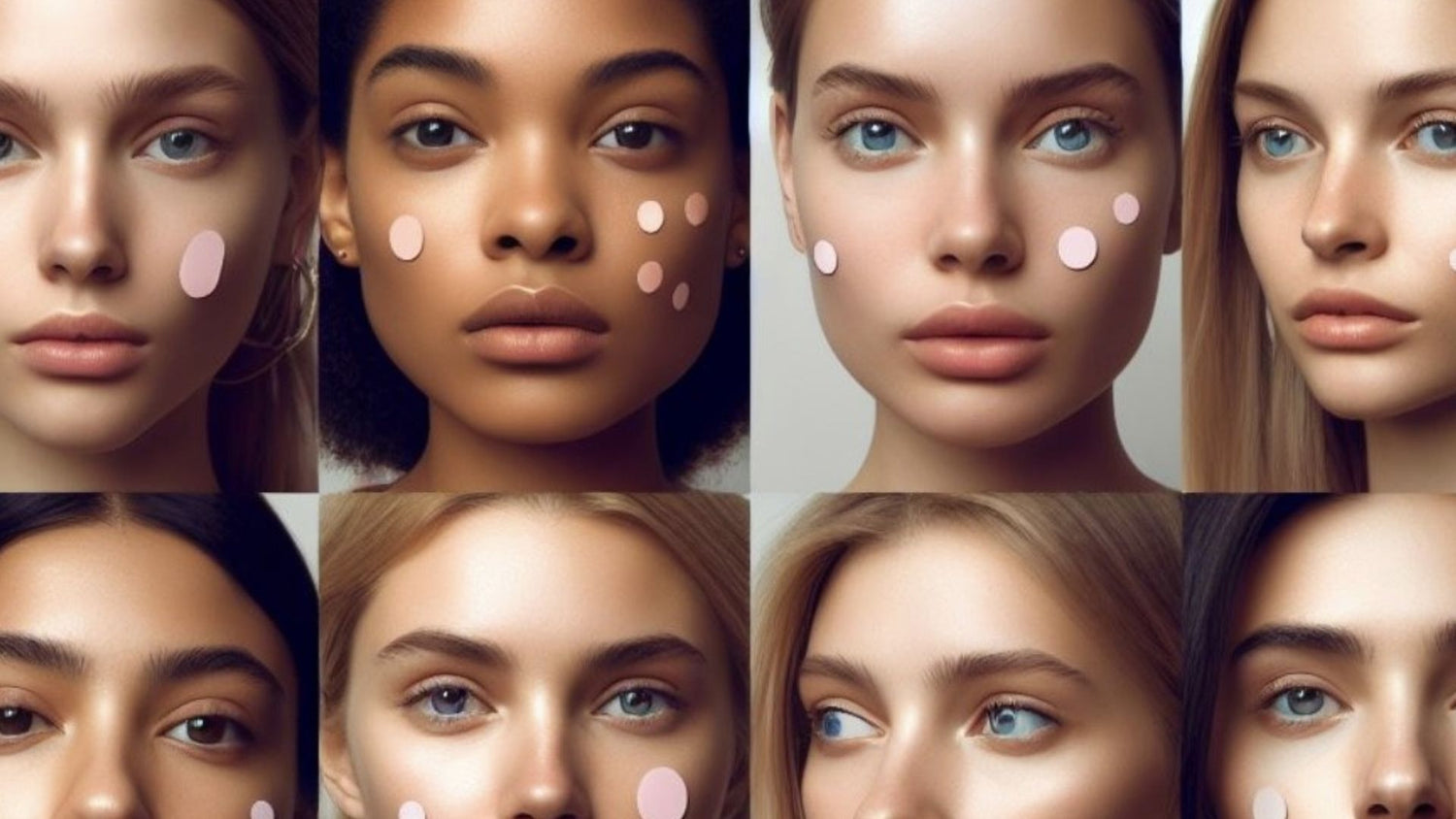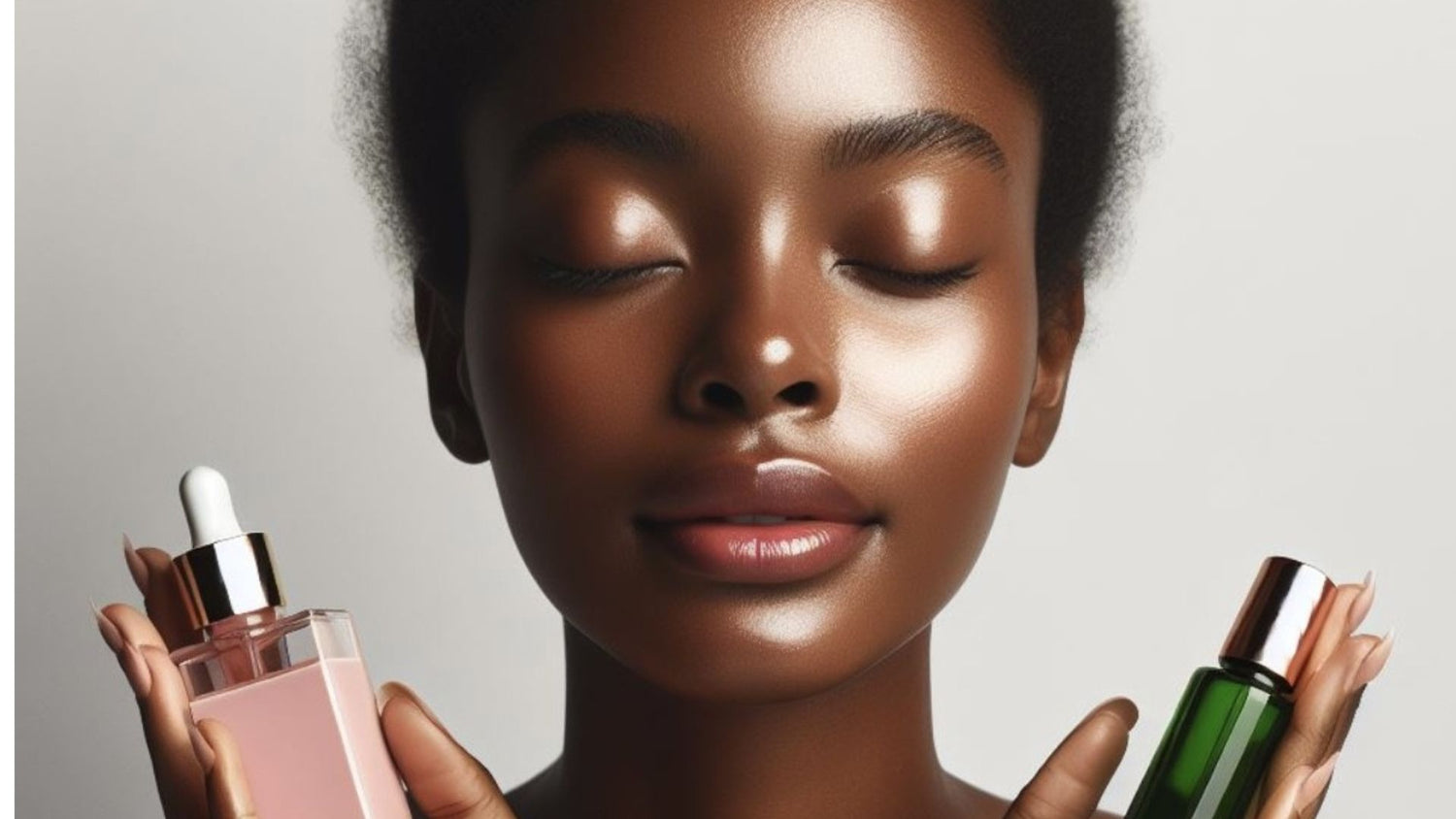Vitamin C is vital to your skin’s health. Not only does it protect your skin from toxins in your environment, but it also helps build collagen, part of the foundation of healthy, youthful skin. But those are just two things that Vitamin C can do for you. Did you know you can also use Vitamin C to lighten skin?
Does Vitamin C Lighten Skin?
Yes. Vitamin C has been shown to lighten hyperpigmentation of the skin, brighten a complexion that has become dull and listless, even skin tone, and reduce the redness associated with inflammation.
Let's do a deeper dive into the science behind Vitamin C as skincare.
As for using Vitamin C to lighten skin hyperpigmentation, it is well known that Vitamin C interferes with the enzyme tyrosinase which is necessary for the production of melanin, the pigment that provides color to your skin. Hyperpigmentation occurs when melanin is overproduced in reaction to some trigger event, such as too much exposure to ultraviolet rays or hormonal fluctuations.
Several in-vitro data and clinical studies support use of topical Vitamin C for anti-inflammatory, anti pigmentation, skin-lightening, photoprotection and managing skin pigmentation disorders, such as melasma and hyperpigmented spots. In vitro refers to tests and procedures done outside of the body (human or animal), such as those done in a test tube or petri dish.
Melasma is characterized by patches or spots of darker color on the face, caused by too much UV exposure, heredity or hormones, such as birth control pills or hormone replacement therapy. Melasma is often brought on by pregnancy where it is sometimes called Chloasma, or the “mask of pregnancy.”
Vitamin C helps to fade melasma and other hyperpigmentation, giving you lighter skin and a more even skin tone.
Also, Vitamin C is a powerful antioxidant which can neutralize the free radicals that attack your skin on a daily basis. Free radicals are atoms that are unstable because they are missing an electron. When they encounter the healthy cells of your skin, they steal that electron away, causing deep damage, even to the collagen in your skin. Collagen is the protein in skin responsible for making it smooth, full, and tight.
Vitamin C can prevent this damage by providing the electrons that the free radicals need before any harm can be done.
Free radicals exist everywhere in your environment as a result of pollution, cigarette smoke, UV rays and even due to some of your body’s metabolic processes. Not only do they damage the vital collagen in your skin, but they leave dark spots behind as a result of the damage they do. Vitamin C helps prevent this from happening in the first place, and helps lighten any that do or have occurred.
The damage free radicals do can also dulls your complexion. But Vitamin C not only stops free radical damage from occurring, it also helps to repair any damage that does happen, thus brightening your complexion and lightening your skin.
Not only that, but Vitamin C also promotes cell turnover, which means that new, fresh skin cells will emerge to replace the dull, dead skin cells and give your face a vibrant glow.
Inflammation in your skin can cause redness. This inflammation can be caused by many things, including overexposure to UV rays, a bacterial infection from the normal bacteria that exist on your skin, inflammatory acne (which includes such an infection) or another wound, like an insect bite. Using Vitamin C to lighten skin in this instance will help because it is not only an anti-inflammatory, but it also has antibacterial properties.
Research has shown that little of the Vitamin C from oral supplements actually makes it to the surface of the skin because of the difficulty the body has in transporting it to the outer layers of the skin. Therefore, topical Vitamin C, such as a serum, is the favored vehicle for skincare treatment, and thus, skin lightening.
That said, suggestions have been made that high doses of oral Vitamin C in the range of 1,000 mg to 3,000 mg may be needed to lighten skin. However, such high doses are NOT recommended. The upper limit for oral supplements of Vitamin C that can be taken safely is 2,000 mg per day, but even that is not recommended. Even though Vitamin C is water soluble and your body will excrete what it doesn’t use, too much in your system can cause stomach ache, nausea, vomiting and diarrhea.
Compare this to the daily requirement of Vitamin C for women, 75 mg, and for men, 90 mg per day, and you’ll see why such high doses are unsustainable.
Which Vitamin C is Best for Skin Lightening?
The purest and most biologically active form of Vitamin C is L-ascorbic acid. There are other derivatives of Vitamin C used in skincare, but L-ascorbic acid is the best Vitamin C to lighten skin. It has the best absorption, especially at a low pH.
You will get the best skin lightening results with higher concentrations of Vitamin C. Your serum has to have a concentration above 8 percent to do any good, but anything over 20 percent isn’t going to improve absorption and will probably just irritate your skin.
The thing about L-ascorbic acid is that it is sensitive to heat, light and air, making it somewhat difficult to work with. This is because it will oxidize and turn brown over time, or sometimes it will even oxidize on your skin. Generally, you’d want to look for L-ascorbic acid serums in dark bottles and keep them in a cool, dark place. But even still, they will only last for about 3 months before they oxidize and become useless.
However, BeautyStat Cosmetics has developed the world’s first stable 20 percent L-ascorbic acid serum, its Universal C Skin Refiner, that will never oxidize or turn brown, remaining potent and effective to the very last drop.
How long does it take Vitamin C to Lighten Skin?
Results will vary, but you should start seeing results in 2 to 4 weeks, with significant lightening in just 2 to 3 months.
Does Vitamin C Affect Skin Color?
No. Vitamin C helps fade hyperpigmentation caused by the overproduction of melanin, but it won’t change the natural color of your skin. It will lighten darkened areas caused by overexposure to the sun, free radicals, heredity and hormones. And, it will help to even out your skin tone and brighten your complexion.
What does Vitamin C do to Your Skin?
Vitamin C lightens your skin by decreasing melanin production, which reduces excess pigmentation in your skin. It scavenges free radicals and protects against the damage done by them by supplying their missing electrons. This prevents darkened areas from forming due to free radical damage.
It is also the primary replenisher of Vitamin E in your skin and works in synergy with it to protect against the damage free radicals cause. In other words, when Vitamin C and vitamin E work together in your skin, the effect is actually more than what you would expect from just adding them together. In this way, Vitamin C can boost its own ability to protect against dark spots caused by free radical damage.
Another of Vitamin C’s many benefits to your skin is that it brightens dull skin by repairing free radical damage. It does this by promoting the synthesis of collagen in your skin. Think of collagen as a primary building block of your skin. And, Vitamin C actually stimulates the production of this vital protein.
Can Vitamin C Fade Dark Spots?
Yes. Vitamin C helps to fade dark spots, including melasma and age spots (also called sun spots, liver spots, solar lentigines , and senile freckles). Age spots are caused by too much exposure to the sun, and can be relatively large or clumped together. They are generally flat and uniform. Most dark spots are not harmful, but if your dark spots change or look strange to you, see a dermatologist right away. Some dark spots caused by sun damage can be melanoma, a dangerous form of skin cancer.
Vitamin C also helps lighten post-inflammatory hyperpigmentation. One example of this is when an acne lesion heals, it leaves a darkened area behind. Vitamin C can help prevent this through its anti-inflammatory properties.
Dark spots are normally caused by the overproduction of melanin. Since Vitamin C breaks the chain of melanin production, it can help lighten all these types of dark spots.
Which Vitamins Lighten Skin?
Vitamin A can help lighten skin due to its action in promoting cell turnover, which brings newer, lighter cells to the surface of the skin. This helps fade hyperpigmentation.
Vitamin B12 also promotes skin cell regeneration, evening out the skin tone.
Vitamin C lightens skin in several ways. Its antioxidant powers fight free radicals, preventing dark spots caused by free radical damage. Vitamin C interferes with the process of melanin formation, thus helping to prevent and fade dark spots such as melasma and age spots. And, its anti-inflammatory properties help to prevent dark spots from forming after an injury resulting in inflammation, such as with inflammatory acne.
Further, it promotes cell turnover, bringing fresh, new cells to the surface, brightening your complexion, and evening out your skin tone. And, it brightens dull, listless skin caused by free radical damage through its antioxidant properties and its ability to heal such damage by stimulating the production of collagen in the skin.
Vitamin E is also a powerful antioxidant that neutralizes free radicals, helping to prevent dark spots from forming due to their damage. And, working in conjunction with Vitamin C, it helps to prevent sun damage, which causes dark spots and melasma.



